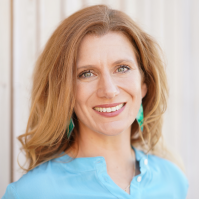Savings Groups are the primary safety net for millions of women in Africa, especially in rural areas. As such, they have a critical role to play in COVID-19 response and recovery efforts implemented by governments, funders, civil society organizations and the private sector.
Women are disproportionately affected by disease outbreaks. COVID will be no different, with gendered primary secondary effects across multiple dimensions:
The Peer Learning Group (PLG) aims to mobilize knowledge that is actionable and empower members through a self-designed learning process and peer-to-peer support.
The group will generate, consolidate and diseminate evidence on (1) the gendered effects of the COVID pandemic on Savings Groups and their members across health, economic and social dimensions, and (2) gender intentional response efforts to support Savings Groups during the crisis and engage them in local response efforts.
The SEEP Peer Learning Group on Savings Groups, Women & COVID-19 has selected two key topics to investigate over the next year: 1) Women’s Voice & Leadership, and 2) Strengthening Savings Group Resilience to Shocks. We seek tools, case studies, and project examples that have been successful or have contributed to your learning. Please share your insights and materials for one or both topics by November 1.
Brianna Fierro, The SEEP Network
As Officer for Learning & Programs, Bri works to enable innovative and effective learning opportunities and methods across SEEP programming through Peer Learning Groups, conferences, trainings and webinars. Since joining SEEP in 2016, she supports several ongoing initiatives focused on learning and collaboration within Women’s Economic Empowerment and financial inclusion through Savings Groups, including coordination of the Women’s Economic Empowerment Working Group.
Bri graduated from Washington University in St. Louis with a BA in Political Science and Spanish, and a minor in Chinese Language and Culture. She speaks English, Spanish, and Mandarin.

Felicity Butler, MarketShare Associates
Felicity is a social scientist with over 20 years’ experience and specializes in gender and social inclusion. She contributes to MarketShare Associates' gender agenda and brings unique expertise in ethical trade, sustainability and innovation in agricultural value chains.
Before joining MSA, Felicity served as Programme Manager for Divine Chocolate and Twin and Twin Trading and led farmer-led development programmes in Ghana, Sierra Leone, São Tomé and Malawi. Prior to this she spent seven years conducting qualitative and participatory research with farming communitiesin Nicaragua in collaboration with The Body Shop for her doctorate. Her PhD focused on an innovative pricing pilot on women’s unpaid work which has since had a direct impact on both policy and business practices in global organizations.
Felicity holds a PhD and Masters in Practising Sustainable Development from the school of Human Geography at Royal Holloway, University of London. She lives in East Sussex in the United Kingdom, has lived and worked in Nicaragua and spent time working in Bolivia, Brazil, Chile, El Salvador, Peru, Ghana, Malawi, Sierra Leone, São Tomé and Príncipe, Uganda and India. Felicity is fluent in both English and Spanish.
The Peer Learning Group is composed of member representatives from governments, NGOs and research organizations across seven countries responsible for the development, design or implementation of gender intentional COVID-19 response and recovery efforts through Savings Groups in sub-Saharan Africa.
Colin Agabalinda, Ministry of Finance, Planning,
and Economic Development
Uganda
Dr. Fred Matovu, Policy Analysis and Development Research Institute (PADRI)
Uganda
Kalkidan Lakew Yihun, CARE USA
Ethiopia
Martina
Crailsheim, VisionFund International
Spain
Stephanie Leigh Plant, International Rescue Committee (IRC)
United States
Virginia Nkwanzi Isingoma, IPSOS
Uganda
Yetunde Fatagun, World Bank
Nigeria
This Peer Learning Group is designed to run for an extended period of 18 months to respond and adapt effectively to practitioner needs and experiences during the ongoing global pandemic. Group members met virtually in early April 2021 to define the PLG learning agenda and workplan, and will hold a monthly videoconference through August 2022.
This initiative is facilitated by The SEEP Network as part of Women Saving for Resilience, a two-year program funded by the Bill & Melinda Gates Foundation and implemented by SEEP in partnership with MarketShare Associates.

1621 North Kent Street, Ste 900,
Arlington, VA, 22209
P 202.534.1400
F 703.276.1433
Website Photos: © mari matsuri

